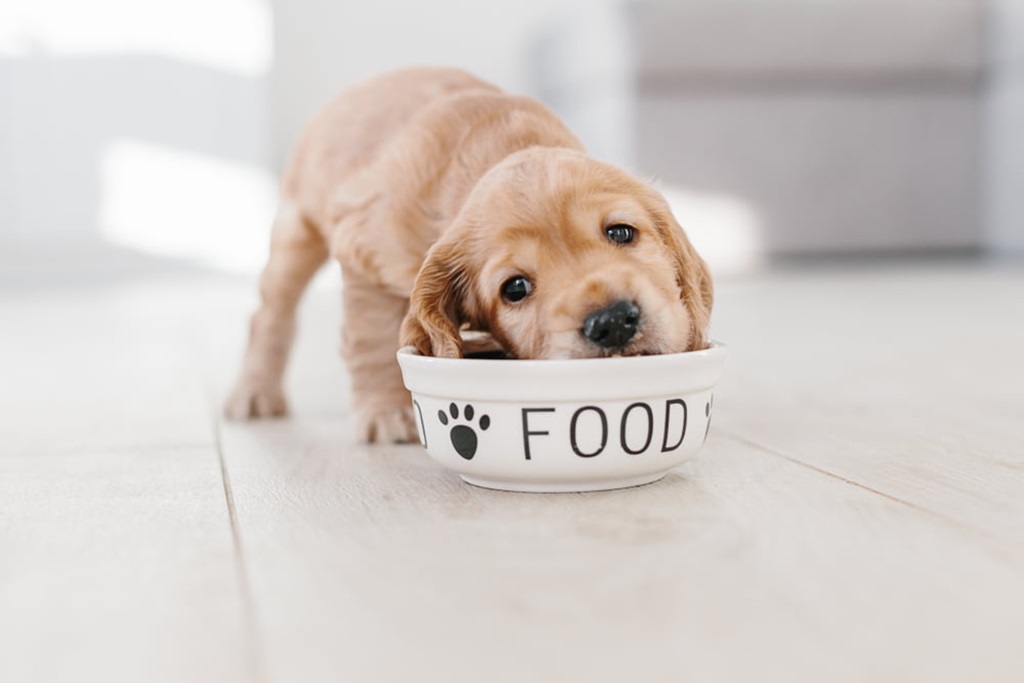
Carburetor Tuning vs. Fuel Injection Tuning: Which One Reigns Supreme?
November 18, 2024
How to Manage Academic Load in College: Practical Tips to Stay Balanced and Succeed
November 20, 2024How Puppies Adjust to Food: A Guide to Their Dietary Journey
As a new puppy owner, one of the most important tasks you’ll face is helping your new companion adjust to food. Puppies, just like human babies, go through a process of transitioning from their mother’s milk to solid food. This journey can be tricky, as it involves more than just choosing the right food. It requires understanding their unique needs and how they adapt to their changing diet. If you want to learn more about helping your puppy adjust to food, you can discover Dogguides for additional resources on puppy care. Here’s a closer look at how puppies adjust to food and what you can do to make the transition smoother.
Table of Contents
ToggleThe Early Stages: From Milk to Solid Food
Puppies are born relying entirely on their mother’s milk for nourishment. This milk provides essential nutrients that help them grow. However, at around 3 to 4 weeks of age, puppies begin to explore solid food. This is a critical transition period. Initially, you might notice your puppy being a bit hesitant or confused by solid food. That’s perfectly normal.
During this stage, most breeders will begin introducing a softened version of puppy food, often mixed with warm water or puppy formula. The goal is to make the food easier to chew and digest. At this point, it’s important to introduce food gradually to avoid upsetting their delicate stomachs.
As puppies’ teeth begin to emerge, they start to adjust to chewing, and by 8 weeks, they are typically fully ready to eat dry kibble. This stage can be a bit messy, but it’s a sign of your puppy’s development. Puppies’ digestive systems are also learning to handle different ingredients, so it’s crucial to choose high-quality, age-appropriate food.
Factors That Affect How Puppies Adjust to Food
Several factors can impact how quickly or slowly your puppy adjusts to food. Genetics, breed, and the puppy’s previous diet play significant roles. For example, a brittany spaniel puppy might adjust differently from other breeds because of their unique energy levels and metabolism. Brittany Spaniels are highly active, which means they may need more protein and higher-quality food to fuel their adventurous lifestyle. Understanding your puppy’s breed-specific needs can help in selecting the right food for them.
Additionally, the weaning process can affect how easily a puppy transitions to solid food. If they were weaned early or late, they might have a different tolerance for new foods. Puppies that were weaned earlier than usual might take more time to adjust to solid food compared to those that spent more time nursing from their mother.
Feeding Schedules and Portion Control
The way you feed your puppy also plays a role in how they adjust to food. Puppies have small stomachs and high energy needs, so they need to eat several times a day—usually 3-4 meals depending on their age. Establishing a consistent feeding schedule helps puppies understand when to expect food and allows their digestive system to adapt.
Portion control is also crucial. Overfeeding can lead to digestive problems or obesity while underfeeding can leave your puppy malnourished. It’s essential to follow the feeding guidelines on the puppy food packaging, but also to monitor your puppy’s weight and energy levels to ensure they’re getting the right amount of food.
Related: Can Dogs Eat Nuts?
Gradual Food Changes for Sensitive Stomachs
Some puppies have sensitive stomachs, which may make adjusting to food a little trickier. If you need to change your puppy’s food, it’s essential to do it gradually. Sudden changes in diet can cause stomach upset, diarrhea, or even vomiting. Instead of switching their food overnight, mix the new food with the old food over the course of 7-10 days. This gradual transition helps your puppy’s stomach adjust to the new ingredients.
If your puppy continues to have stomach issues after the transition, consult with your vet. They might recommend a special diet or food additives to support their digestive health.
Signs That Your Puppy Is Adjusting Well
While it can take time for puppies to fully adjust to their new diet, there are several signs that indicate they’re doing well. A healthy puppy should have a shiny coat, normal bowel movements, and a happy, energetic demeanor. If you notice any unusual symptoms like extreme lethargy, persistent diarrhea, or vomiting, it’s time to consult a veterinarian to rule out allergies or food intolerances.
Related: Can Dogs Eat Watermelon?
Final Thoughts on Helping Puppies Adjust to Food
Helping a puppy adjust to food isn’t just about picking the right brand—it’s about being patient and attentive to their needs. Whether it’s transitioning from milk to solid food or adjusting to a new diet, consistency and understanding are key. If you’re unsure about what food is best for your puppy, always consult your vet to make the most informed decision.
By being mindful of the factors that affect their food transition, you can ensure your puppy grows into a healthy and happy dog.





